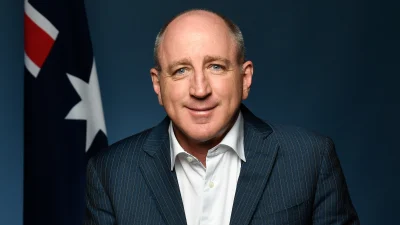The state of financial wellbeing in Australia



Amid current inflationary pressure, interest hikes, and changes to superannuation, financial capability continues to be at the forefront of conversations, though many remain concerned about everyday Australians’ ability to manage their money.
Combining financial knowledge with skills and confidence, it is understood financial capability plays a key role in numerous areas of daily life, helping individuals navigate an already complicated financial system.
However, as recent figures have indicated, Australians are less prepared than they should be.
Australians’ financial literacy levels went backwards between 2016 and 2020, especially among people aged under-35, according to the Household, Income and Labour Dynamics in Australia (HILDA).
Similarly, research from the University of Newcastle last year found just 66% of Australians could be classified as financially literate.
Such statistics could not be taken lightly when financial wellbeing was intrinsically linked to the overall physical, mental and social health of individuals and communities, said Caroline Stewart, chief executive of Ecstra Foundation, a charitable organisation committed to building financial wellbeing.
“Financial choices around spending, saving, investing and planning can make a significant difference to households’ short- and long-term financial wellbeing and ability to deal with inevitable money stresses that arise unexpectedly,” Stewart said.
“Financial education plays a key role in building financial capability and improving financial wellbeing, by teaching life skills that can help develop positive money behaviours and can be used in decision making.”
According to adviser Jessica Brady, financial literacy in Australia was “on a slippery slope heading south”. It was among one of the drivers behind her founding The Greenhouse program, a 10-week online course for young Australians, covering topics like investments and risks, cashflow, property investing, and estate planning.
“There are many hurdles that average Australians face when it comes to managing money, often there are intersecting barriers at play,” she observed.
“We like to believe [Australia is] a fair and reasonable place to live yet we can’t forget that, for generations, we told women that money is a man’s domain. My grandmother didn’t have the right to have a loan in her own name until her children were teenagers [and] it was ingrained that it is ‘unladylike’ to speak about money, which kept them quietly feeling ashamed and confused.
“Trust is also a huge barrier as well as trying to decipher what information is relevant from the plethora of content online, often sending people into choice fatigue and overwhelming them leading to inaction.”
Additionally, per the latest 2021 census, over a quarter (29.1%) of Australia’s resident population were born overseas, migrating “into a sophisticated, complex, jargon full financial system”, Brady added.
Building financial literacy from a young age
In 2014, the first National Financial Literacy Strategy set the foundation for using educational pathways to build financial literacy while its successor set the first priority to educate the next generation, particularly through the formal education system. Within this, some 9,500 schools in Australia witnessed formal integration of financial literacy education.
Despite this strategy, the Program for International Student Assessment (PISA) tests of school students around the age of 15 witnessed a decline in average financial literacy scores, going from 526 in 2012 to 504 in 2017.
Dr Laura de Zwaan of Griffith Business School, co-author of the Financial Literacy of Young Australians report in 2022, found most students had little or no knowledge or understanding of personal finance.
Instead, students were left to turn to independent or Government resources like ASIC’s MoneySmart website, ATO tools, or state education resources like Victoria’s FUSE hub to gain further knowledge.
“[Financial literacy education] has been a little watered down, it isn't its own subject. It's not even its own knowledge area,” she told Money Management.
“It is being taught and some teachers do an amazing job, but it could definitely be improved.
“One of the big things that came out of my research, and even from young people I've talked to, is they wanted more of [financial education]. They're aware that they don't know these things.”
Dr de Zwaan added: “On top of that, there are a lot of authors, podcasts, even social media accounts of people trying to help and educate others. There are a lot of programs that are running in communities. But it's often something that people search for once they have already had poor experiences.
“We do have research that shows the financial habits that people form in their young adulthood follow them through life. So if they start using too much AfterPay, if they start collecting credit card debt, that sort of behavior is going to be really difficult to break.
“I would like to see some sort of program, particularly for those Years 10 to 12, that really helps them learn these basic skills that they're going to need when they go into the workforce.”
An aspect of her report explored the influence of home life on financial decision-making, finding that few Year 10, 11, and 12 students lived at home with two parents. Considering young Australians continued to struggle with financial stress and relied on avenues like family advice in deciding financial products, young people who lived in alternate household structures would be on unequal footing with their peers.
“You are embedding disadvantage because some people come from families where they do have a good understanding of finances, but there are a lot of households out there where they don't have [that] or have parents who are poor examples of how to manage your money,” Dr de Zwaan agreed.
Navigating the financial system
At a media gathering in Sydney, Quality of Advice (QOA) reviewer Michelle Levy expressed scepticism on whether improving financial literacy in schools could address the issue of the need for financial advice.
There was “no amount of education that could be enough” to navigate Australia’s financial system alone, she said.
“We can't just rely on people being sufficiently literate. It would be quite nice if everybody was really well educated, but I don’t think financial literacy programs are going to be an answer,” Levy stated.
Ecstra Foundation’s Stewart was in agreement. She elaborated that a range of educators, academics, financial institutions, community organisations, and consumer advocates were engaged in financial capability work, but “a whole of systems approach” was needed, with a clear leadership role for the Government to play in implementing the National Financial Capability Strategy.
“This would ensure the next generation of young people are financially literate, provide better protections for those experiencing economic insecurity and help improve the financial futures of all Australians,” she said.
“In a complex world, no amount of personal financial education can ever act as a substitute for consumer protections, backed by strong regulatory settings. Good examples of these protections at work include the design and distribution obligations and the anti - hawking provisions.”
The Talk Money with Ecstra Foundation program, launched in 2022 as free, in-person school programs, had reached more than 110,000 students with over 3,200 workshops across the country till date.
Its core concepts include saving, spending and goal setting as well as practical topics for older students such as commercial influences, getting a job, paying tax, super accounts and rights at work, Stewart elaborated.
“Those key milestones like a first job, leaving school, or budgeting for a significant purchase are all important teachable moments for students,” Stewart noted.
Ultimately, the last few years had presented huge opportunities for those who already had assets to get further ahead financially, Brady observed, but there remained a large section of Australians left behind.
“Those who have had money in markets and had already purchased houses long ago have reaped the benefits, but those who are young or never entered the market are falling further behind and it’s impacting more than their wallets.
“We talk a lot about hopes and dreams as advisers, but unless we help more people understand and improve their financial literacy, most won’t be able to even afford their basic needs.”
Recommended for you
The emergence of DeepSeek, a Chinese artificial intelligence (AI) start-up that claims to have built an advanced large language model in just two months for under US$6 million, sent shockwaves through the AI world and cratered US tech stocks.
Donald Trump’s presidency has already begun reshaping the corporate and political landscape in the US, with executive orders rolling back diversity, equity, and inclusion (DEI) initiatives and clean energy efforts.
In this episode of Relative Return Unplugged, hosts Maja Garaca Djurdjevic and Keith Ford are joined by AMP chief economist Shane Oliver to take a look at what can be learned from 2024 as attention turns to what markets will do in the new year.
Join us for a special episode of Relative Return Unplugged as hosts Maja Garaca Djurdjevic and Keith Ford are joined by shadow financial services minister Luke Howarth to discuss the Coalition’s goals for financial advice.














I attended Stephen Jones breakfast chat the grand Hyatt on Thursday
To my amazement there was only a few advisers who got up and asked questions of Fasea and the ministers view of the state of affairs in the industry
I must say I was impressed with his humble and positive responses to all sections of the groups in the room
I must congratulate Leigh Anoos who courageously spoke about her failing the Fasea exam.It’s amazing isn’t it where someone who has a Masters in FP cannot pass this exam
What it tells me that the exam has been a joke and not even remotely what FP is about
I have also failed this exam so many times (I have been in the industry over45 years in my advice business yet we have kids coming in and passing this exam who have never advised-
Fasea was and us now finished and fully broken
Good riddance-hoping that there. Will be changes soon